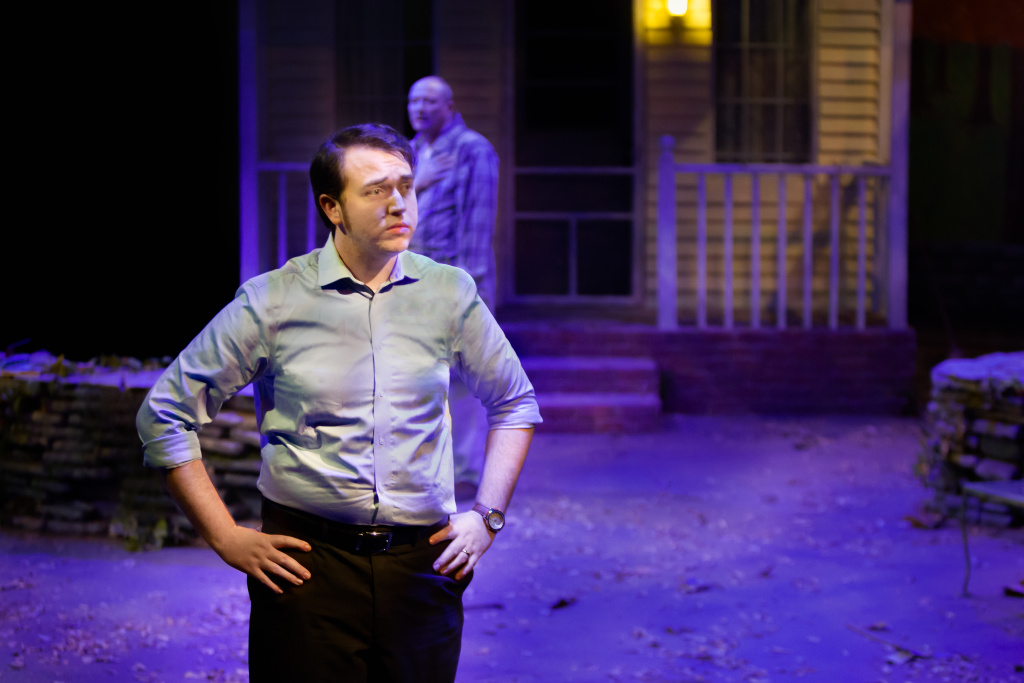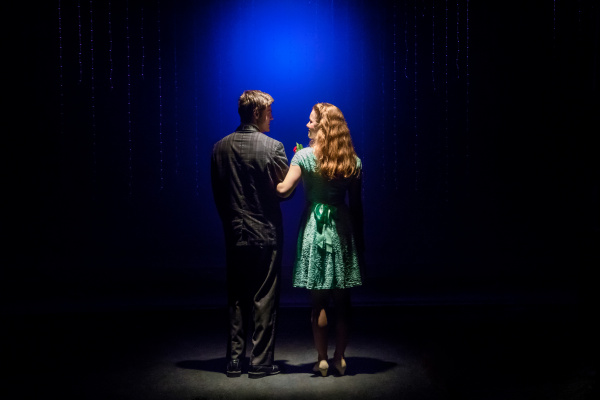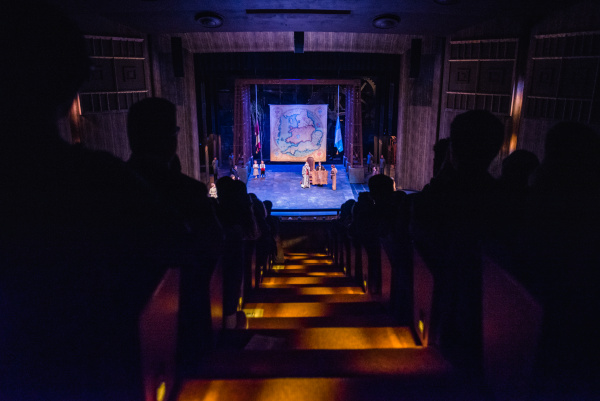A Family in Crisis
Sam is a self-reliant man. The son of a preacher, he grew up on a steady diet of Bible stories but rejected his childhood faith. He has built a successful career as a surgeon. He’s even got a wife and a bright young son to his credit. But when his lifelong friend Mavis dies on his operating table, Sam must reevaluate his beliefs—in himself, in science and in God.
Nathan Pittack is directing this production as his graduate project. A cast of four works in ensemble to tell a story of conflicting ideologies. Sam (Isaac Stephens) and spouse Glory (Kate Jones) navigate their son Stephen’s blooming curiosity. Glory buoys up the family emotionally while Sam fields his son’s questions with scientific responses. Dr. Lonnie Polson portrays Sam’s father, a preacher whose worldview chafes against Sam’s own and inspires more probing questions from little Stephen.
Kate Jones, the actor portraying Glory, said, “I knew I wanted this part the minute I read the audition monologues. It’s just so true to life. There is intense realness and transformation related in just a few pages, and it’s an incredible opportunity to be able to portray that.”
“We are all very excited to share this story,” Jones added. “It’s an excellent play and it definitely has some lighter moments, but the text is chock-full of meaning so audiences will definitely have to be paying close attention to what’s happening.”
Confronting Current Themes
Traveler in the Dark comes from the mind of Marsha Norman, the same playwright who wrote the scripts for musical adaptations of The Secret Garden and The Color Purple. Norman titled the play after a line from a lesser-known stanza of “Twinkle Twinkle Little Star”:
Then the traveller in the dark
Thanks you for your tiny spark;
He could not see where to go,
If you did not twinkle so.
The play grapples with opposing forces: reliance on God and reliance on self. Traveler in the Dark alludes to a lot of common and recognizable cultural elements. Nursery rhymes, fairy tales, and allusions to stories in Scripture all play key roles. These allusions—and the questions they inspire—propel the story forward.The play depends less on plot twists or cliffhangers and revolves instead around a debate between characters and ideologies.
“While the author is not a believer, her play is centered around someone in a search of something beyond himself,” said Jones. “I think the majority of people who come will be challenged by the ideas presented in the play and reminded of why they chose to believe what they believe.”
The production will open in Performance Hall on April 22.








